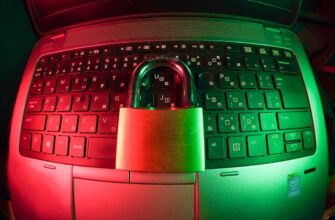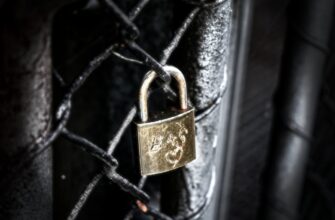When it comes to cryptocurrency security, backing up private keys is a critical step. But what about air-gapped backups? Is it safe to backup private keys air-gapped? This article explores the risks, benefits, and best practices of air-gapped private key backups to help you make informed decisions.
## Understanding Air-Gapped Systems
An air-gapped system is a computer or device that is physically isolated from other networks, including the internet. This isolation is achieved by disabling all network interfaces and ensuring no data can be transferred in or out. Air-gapped systems are often used for high-security applications, such as cryptocurrency wallets, because they eliminate the risk of remote attacks.
## Why Backing Up Private Keys Matters
Private keys are the digital equivalent of a physical key. They grant access to your cryptocurrency holdings, and losing them can result in irreversible loss of funds. Backing up private keys is essential, but the method of backup matters. Air-gapped backups are a popular choice for security-conscious users, but they are not without risks.
## Risks of Not Backing Up Private Keys
Failure to back up private keys can lead to catastrophic consequences. If your device is compromised, or if you lose your hardware wallet, you may lose access to your funds. Additionally, if you don’t have a backup, you may be unable to recover your keys in the event of a hardware failure or natural disaster.
## Is It Safe to Backup Private Key Air Gapped?
The safety of air-gapped private key backups depends on several factors, including the security of the backup medium, the physical environment, and the encryption methods used. Here are the key considerations:
### 1. Secure Storage of Backup Media
Air-gapped backups must be stored in a secure, physical location. This could include a safe, a secure vault, or a trusted third-party storage facility. The backup medium (e.g., a USB drive, a physical ledger, or a printed key) should be encrypted and stored in a location that is inaccessible to unauthorized individuals.
### 2. Physical Security
Air-gapped systems are vulnerable to physical breaches. Ensure that the location where you store your backup is secure. This includes using a safe, limiting access to the area, and avoiding high-traffic areas that could attract theft or vandalism.
### 3. Encryption and Authentication
The backup medium should be encrypted to prevent unauthorized access. Additionally, use strong authentication methods to ensure that only authorized individuals can access the backup. This includes using strong passwords, biometric authentication, or multi-factor authentication (MFA) for any systems that interact with the backup.
### 4. Regular Audits and Updates
Even the most secure backup system requires regular audits to ensure it remains effective. Check that the backup medium is still intact, that the encryption is still valid, and that the physical location remains secure. Regular updates to your security protocols can help prevent vulnerabilities from being exploited.
## Best Practices for Air-Gapped Private Key Backups
To maximize the safety of your air-gapped private key backups, follow these best practices:
– **Use a trusted backup medium**: Choose a reliable and secure medium for storing your backup. This could include a USB drive, a physical ledger, or a printed key.
– **Encrypt the backup**: Ensure that the backup is encrypted to prevent unauthorized access.
– **Store in a secure location**: Keep the backup in a secure, physical location that is inaccessible to unauthorized individuals.
– **Regularly audit the backup**: Check the backup regularly to ensure it remains intact and secure.
– **Use strong authentication**: Implement strong authentication methods to ensure that only authorized individuals can access the backup.
## FAQ: Air-Gapped Private Key Backups
### What is an air-gapped system?
An air-gapped system is a computer or device that is physically isolated from other networks, including the internet. This isolation is achieved by disabling all network interfaces and ensuring no data can be transferred in or out.
### Is it safe to backup private keys air-gapped?
Yes, it can be safe to backup private keys air-gapped, provided the backup is stored securely and the physical environment is protected. However, it is important to follow best practices to ensure the backup remains secure.
### How do I securely store an air-gapped private key backup?
To securely store an air-gapped private key backup, use a secure, physical location such as a safe or a secure vault. The backup medium should be encrypted and stored in a location that is inaccessible to unauthorized individuals.
### What are the risks of not backing up private keys?
The risks of not backing up private keys include the potential loss of access to your cryptocurrency holdings. If your device is compromised or if you lose your hardware wallet, you may be unable to recover your funds without a backup.
### How often should I audit my air-gapped private key backup?
It is recommended to audit your air-gapped private key backup regularly, at least once every six months. This ensures that the backup remains intact and secure, and that the physical location remains protected.
In conclusion, air-gapped private key backups can be a safe and effective method for securing your cryptocurrency holdings. However, it is important to follow best practices and ensure that the backup is stored securely. By understanding the risks and implementing proper security measures, you can protect your assets and ensure the long-term security of your digital assets.








